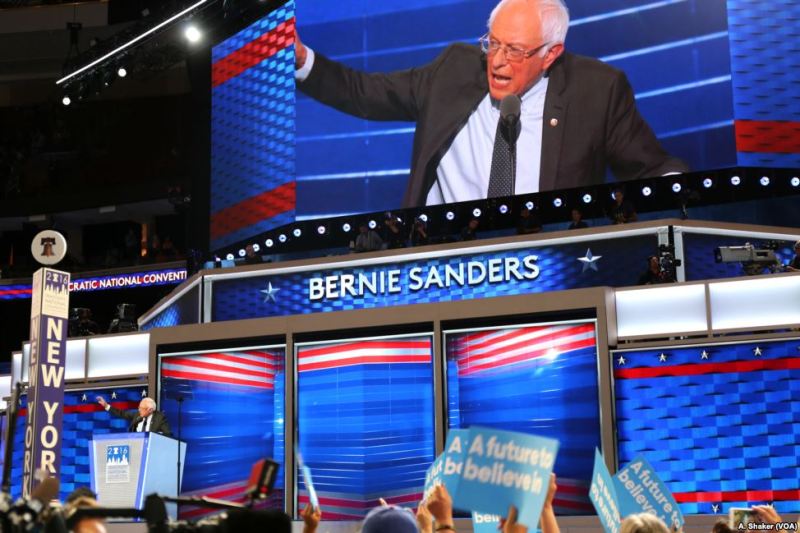March 3, 10 and 17 saw three resounding electoral defeats for Bernie Sanders and his particular strain of politics. He lost in red states and blue states, coastal states and midwestern states, diverse states and homogenous states and everywhere in between. In many respects, Sanders is less competitive this cycle than he was in 2016. For all of his fundraising prowess and universal name recognition, it appears that Bernie’s support is less organized, less motivated and less diverse than ever (excepting the Latino vote, which he courted quite effectively). The much-vaunted working-class coalition has not materialized. On the contrary, Sanders’ existing base is shrinking, a trend made even more surprising given his dominating performance in the first three contests. With Biden back from the dead and progressivism relegated to the backseat, many politicos are left wondering: How on earth did Bernie fall so far?
Some of Sanders’ struggles are outside of his control. There is no Hillary Clinton in the race, irrespective of Twitter’s efforts to paint Biden with the same brush. Nor do voters feel they have the freedom to cast protest ballots. Most Democrats just want to get Trump out of office, big structural change be damned, and although Sanders diehards will tell you that the best bet to succeed come November is with an exciting candidate, that excitement has yet to show up to the polls. Biden, not Bernie, is seen as the reliable choice, and in 2020, reliability is everything. This dynamic is partly baked into their brands — Sanders as the consummate underdog, Joe as the experienced insider. But, in politics as in life, reputation is malleable. What you say matters.
And Bernie has stoked rather than soothed fears about his intransigence. In a time when Democrats want to come together and focus on beating Trump, Sanders remains violently allergic to compromise. His unwillingness to reconcile with the establishment — exemplified in his combative performance at Sunday’s debate — endears him to his base yet does little to sway the demographics that form the party’s foundation. Bernie’s bullishness didn’t hurt him much in the early states, where other hopefuls split the electorate enough for a rock-solid plurality to win out, but once the field began to consolidate, it became clear that strongly held belief isn’t enough to secure the nomination.
Even more frustratingly, Sanders didn’t need to take this path. Up to and following his triumph in Nevada, Bernie had the opportunity to soften his rhetoric, act like the frontrunner and bring moderates into his movement. It wouldn’t have taken much — a call for unity, an online ceasefire, an abstention from negative campaigning. That clearly didn’t happen. If anything, Sanders and his allies ramped up their attacks. In true Trumpian fashion, Bernie himself suggested that The Washington Post was trying to damage his candidacy, while his surrogates and staffers took potshots at everyone from journalists to union officials.
And Sanders paid the price for his mudslinging. Biden tore through South Carolina, prompting an emptying of the center lane and a groundswell of endorsements. As voters closed ranks around the former vice president, Bernie was left in the lurch, his chances of clinching a delegate majority shrinking to zero. Would more Democrats and Democratic leaders have embraced Sanders had he paid lip service toward party unity? Unlikely, but they might not have rallied so readily around Biden. And when progressive stalwart Elizabeth Warren implies the “organized nastiness” of Sanders and his supporters is the chief reason she won’t back his campaign, it might be time to reflect on what needs to change.
I understand Bernie’s reluctance to modify his messaging. After all, his unique ability to give voice to grievance propelled him from senatorial obscurity into the upper echelons of the national discourse. But while this kind of divisive rhetoric might make sense for an outsider, it certainly doesn’t play well for a presumptive nominee. Ezra Klein said it best: You can’t lead a party you loathe. It’s the difference between burning bridges and building them, revolution and resolution, and as any good insurgent knows, blowing up trains to further an agenda is less popular than making them run on time. If we ignore the reality that righteous anger and uncompromising maximalism and contempt for other Democrats does not make for a strong platform, progressivism will continue to lose at the ballot box.
So what can we learn from Sanders’ shortcomings? Above all, respect others. Support candidates who respect others. Promote messaging that respects others. This isn’t about a misguided sense of civility or naive notion of bipartisanship. This is about winning. We win when we include those who don’t agree with us on everything, when we welcome moderates into the fold, when we allow for compromise in the midst of moral urgency. We don’t win when we slam AOC for leaving a nice comment on a video of Elizabeth Warren dancing. It can be tempting to dunk on a centrist or belittle a boomer for their policy positions. But giving in to this impulse alienates the very voters who decide elections, ultimately torpedoing any chance of passing progressive legislation. There simply isn’t time for petty sniping or bad-faith squabbling, regardless of what Twitter might think. If nothing else, the Democratic primaries confirmed that Americans are tired of a politics that feels like a fistfight. Maybe it’s time politicians listened to them.
Sean Casey served as a principal operations associate for Pete for America.
Contact Sean Casey at spcasey ‘at’ stanford.edu.
